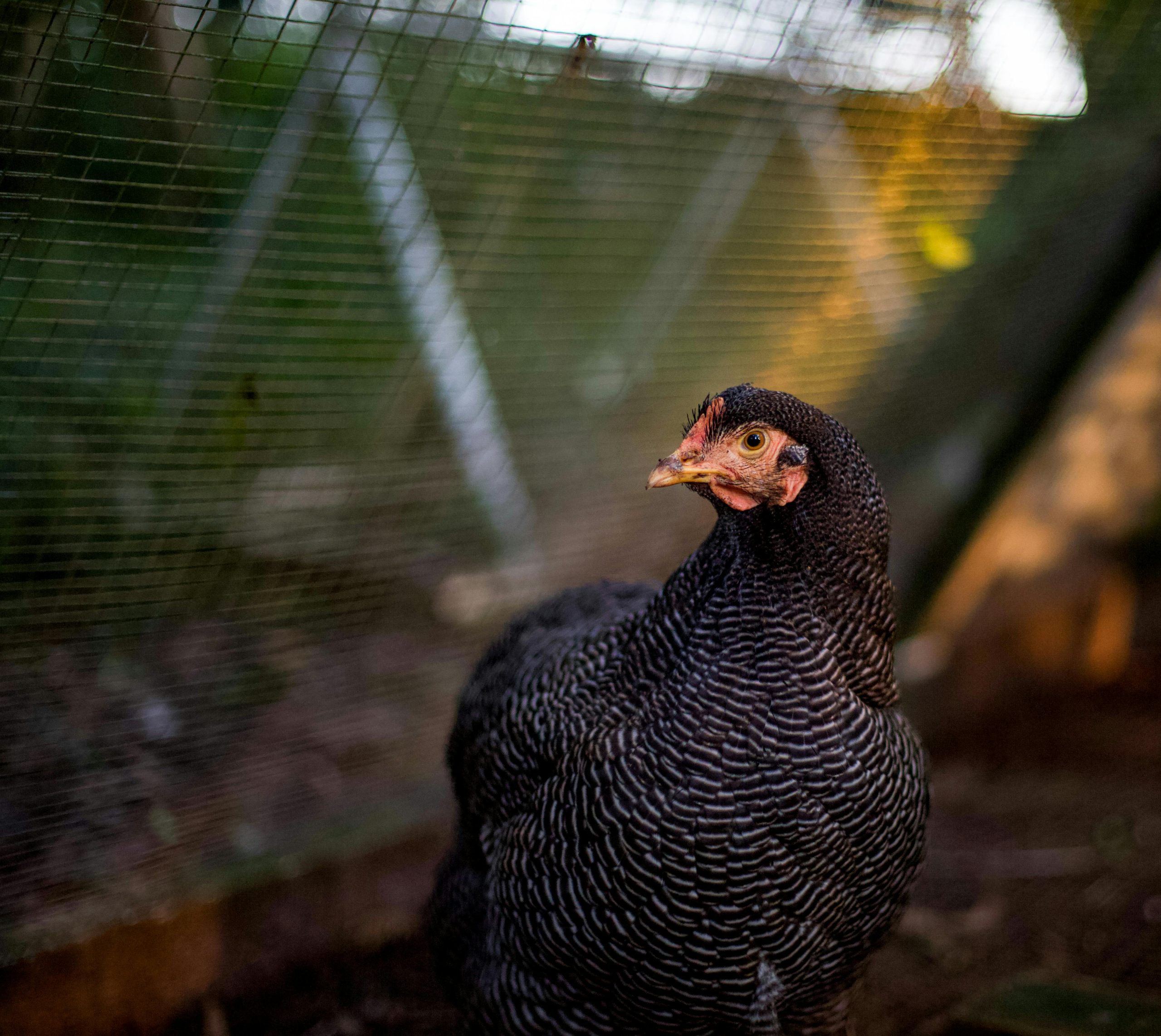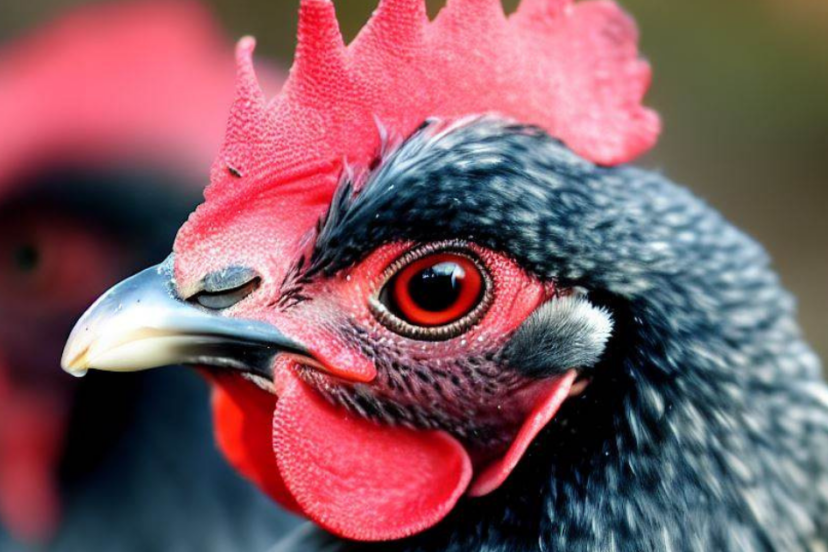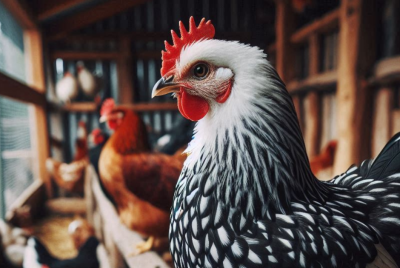Blue Plymouth Rock Chickens: A Colorful Addition to Your Flock
With their stunning appearance, gentle temperament, and practical benefits, Blue Plymouth Rock chickens are a fantastic choice for both experienced and novice chicken keepers. In this article, I will provide valuable suggestions and reasons for considering Blue Plymouth Rock chickens as part of your flock.
These birds are a variety of the well-known Plymouth Rock breed, which has been cherished by poultry enthusiasts for over a century. Blue Plymouth Rocks, also known as Blue Rocks or Blue Barred Plymouth Rocks, stand out with their distinctive blue-gray feathers and elegant appearance.
The History of Blue Plymouth Rock Chickens
The history traces back to the development of the original Plymouth Rock breed in the United States during the 19th century. The breed was created by crossing various heritage chicken breeds, including Dominiques, Black Javas, and Cochins. The intention was to produce a dual-purpose breed that excelled in both egg production and meat quality. Over time, the blue variety emerged as a result of natural color mutations, captivating breeders and enthusiasts with its unique beauty.
Characteristics and Appearance

Body Type and Size
Blue Plymouth Rock chickens exhibit the same sturdy and well-rounded body type as their Plymouth Rock counterparts. They have a medium-to-large size, with mature roosters weighing around 8 to 9.5 pounds (3.6 to 4.3 kg) and hens weighing approximately 6 to 7.5 pounds (2.7 to 3.4 kg). Their compact build and broad chests contribute to their robust and robust appearance.
Feather Colors and Patterns
What sets blue Plymouth Rock chickens apart is their captivating plumage. Their feathers showcase a beautiful blue-gray color, with each feather displaying a lustrous sheen that adds to their visual appeal. The plumage pattern features alternating dark and light bars, creating a striking contrast. This striking coloration makes blue Plymouth Rock chickens a delightful addition to any flock.
Temperament and Personality
One of the reasons they are highly sought after is their delightful temperament and friendly nature. These birds are known for their docile and calm personalities, making them suitable for families and individuals of all ages. Whether you have children or prefer a peaceful backyard environment, blue Plymouth Rock chickens are a great choice.
They are gentle and easily approachable, which makes handling and interacting with them a pleasant experience. Blue Plymouth Rock chickens are known to be curious and intelligent, often displaying a friendly and inquisitive nature. They quickly become accustomed to human presence and can even develop bonds with their caretakers.
Their amiable temperament extends to their interactions with other flock members. Blue Plymouth Rock chickens are known to be tolerant and non-aggressive, making them excellent additions to mixed flocks. They are unlikely to engage in aggressive behaviors or pick fights with other chickens, promoting a harmonious and peaceful environment.
Benefits of Raising Blue Plymouth Rock Chickens
Hardy and Adaptable
One of the significant advantages of raising blue Plymouth Rock chickens is their resilience and adaptability to different climates. These birds have a robust constitution, allowing them to thrive in various environmental conditions. Whether you reside in a hot or cold climate, blue Plymouth Rocks can withstand temperature extremes and adapt accordingly.
Dual-Purpose Breed
Blue Plymouth Rock chickens are considered a dual-purpose breed, meaning they excel in both egg production and meat quality. They are reliable layers of large brown eggs, making them an ideal choice for those seeking a consistent supply of fresh eggs. They have the same great egg-laying capabilities as the Black Copper Maran Chickens. Additionally, if you decide to raise chickens for meat, blue Plymouth Rocks have well-developed musculature, yielding flavorful and tender meat.
Friendly and Docile Nature
As mentioned earlier, blue Plymouth Rock chickens possess a friendly and docile nature. This characteristic makes them wonderful companions and pets for chicken enthusiasts of all ages. They are known to be calm and easygoing, allowing for easy handling and a stress-free experience when caring for them.
Housing and Environment
Coop Requirements
When providing housing, it’s essential to ensure a safe and comfortable coop. The coop should be spacious enough to accommodate their size and allow for free movement. Adequate ventilation is crucial to maintain optimal air quality and prevent the buildup of moisture, which can lead to health issues. Additionally, the coop should be predator-proof, with sturdy fencing and secure locks to keep potential threats at bay.
Outdoor Space and Protection
While they can adapt to various climates, they still require access to outdoor space for exercise, foraging, and enjoyment. Designate a secure outdoor area or utilize a chicken run to provide them with the opportunity to explore and engage in natural behaviors. It’s essential to ensure the outdoor space is protected from predators, such as installing wire fencing and covering the top to prevent aerial threats.
Feeding and Nutrition
High-Quality Poultry Feed
Proper nutrition is vital for the health and well-being. Provide them with a balanced and nutritious poultry feed that caters to their specific needs. Look for high-quality commercial feed that contains essential nutrients, vitamins, and minerals. The feed should be formulated for laying hens to support optimal egg production. Offer the feed in appropriate feeders that prevent waste and contamination.
Supplementary Treats and Greens
In addition to a nutritious feed, supplementing their diet with treats and greens is beneficial for their overall health and happiness. Treats such as mealworms, fruits, and vegetables can be offered in moderation as a source of enrichment and variety. Additionally, provide them with access to fresh greens and forage, allowing them to peck and scratch for insects and plants, which adds natural elements to their diet.
Health and Care
Regular Health Checks
To ensure the well-being of your blue Plymouth Rock chickens, regular health checks are essential. Monitor their overall condition, including their feathers, eyes, beak, and feet. Look for any signs of illness, injury, or parasites.
5 Common Health Issues and Prevention
Blue Plymouth Rock chickens are generally hardy and resilient, but they can still be susceptible to certain health issues. Here are some common health concerns to be aware of and preventive measures to keep your chickens healthy:
1. Respiratory Infections:
Respiratory infections can occur due to poor ventilation or exposure to damp conditions. Ensure proper ventilation in the coop, maintain clean bedding, and avoid overcrowding to minimize the risk of respiratory issues.
2. Parasites:
External parasites such as mites and lice can affect the health of your chickens. Regularly inspect your birds for signs of infestation, such as feather loss, irritation, or unusual behavior. Use appropriate treatments and keep the coop clean to prevent parasite infestations.
3. Coccidiosis:
Coccidiosis is a common intestinal infection caused by a protozoan parasite. Maintain good hygiene in the coop by regularly cleaning and disinfecting to reduce the risk of coccidiosis. Additionally, providing a clean and dry environment along with a balanced diet can help strengthen your chickens’ immune systems.
4. Egg-related Issues:
Occasionally, chickens may encounter egg-related problems such as egg binding or egg peritonitis. Monitor your hens’ egg-laying behavior and ensure they have a proper diet with sufficient calcium to prevent these issues. If you notice any abnormalities or difficulty in laying eggs, consult a veterinarian for guidance.
5. Heat Stress:
Blue Plymouth Rock chickens, like other breeds, can be susceptible to heat stress during hot weather. Provide shade, access to fresh water at all times, and misting or sprinklers to help them cool down. Proper ventilation in the coop is crucial for maintaining a comfortable temperature.
Regularly observe your chickens, paying attention to any changes in behavior, appetite, or appearance. Early detection of potential health issues can prevent further complications and allow for prompt treatment.
Breeding and Reproduction

Selecting Breeding Stock
If you’re interested in breeding blue Plymouth Rock chickens, careful selection of breeding stock is essential. Choose birds that meet the breed standard in terms of color, pattern, and overall conformation. Look for healthy, vigorous individuals with good temperaments and desirable traits. Avoid breeding closely related birds to maintain genetic diversity and reduce the risk of inherited health issues.
Incubation and Hatching
When incubating eggs, ensure the incubator is set to the appropriate temperature and humidity levels. Follow the manufacturer’s instructions for optimal results. Monitor the eggs during incubation, and maintain a clean environment to promote successful hatching. Once the chicks hatch, provide them with a warm and secure brooder setup.
Handling Chicks and Adults
Proper training and handling of blue Plymouth Rock chickens contribute to their socialization and ease of care. From a young age, gently handle the chicks to accustom them to human touch. This helps them become more comfortable with handling as adults. Approach them calmly and avoid sudden movements to build trust and establish a positive relationship.
Positive Reinforcement Techniques
Training blue Plymouth Rock chickens can be accomplished using positive reinforcement techniques. Reward desired behaviors with treats or praise to encourage them to repeat those behaviors. For example, if you want them to return to the coop at a specific time, provide a treat when they do so. This positive association helps reinforce the desired behavior.
Preparation for Shows: Handy Tips
If you have a keen interest in showcasing your flock at poultry shows, careful preparation is key. Here are some tips to enhance their presentation:
- Regularly groom and clean your chickens, ensuring their feathers are in excellent condition.
- Trim any excess feathers around the feet and beaks.
- Practice handling and training your chickens to become comfortable with being examined and showcased.
- Familiarize yourself with the show rules and regulations to ensure you meet all requirements.
- Train your chickens to stand still and pose for judges, emphasizing their best features.
- Presentation and Showmanship
When presenting your blue Plymouth Rock chickens at shows, pay attention to the following:
- Display confidence and professionalism while showcasing your chickens.
- Position your chickens in a way that highlights their unique coloration and plumage pattern.
- Maintain a clean and organized display area, showcasing the cleanliness and health of your birds.
- Engage with judges and fellow exhibitors, showcasing your knowledge and passion for the breed.
Remember, participating in poultry shows is not only a chance to showcase your blue Plymouth Rock chickens but also an opportunity to learn from others and contribute to the preservation and promotion of this remarkable breed.
Closing remarks
In conclusion, blue Plymouth Rock chickens are an exceptional choice for chicken enthusiasts seeking a beautiful, friendly, and versatile addition to their flock. Their striking appearance, gentle temperament, and dual-purpose qualities make them a delightful breed to raise. By providing them with appropriate housing, nutrition, care, and handling, you can enjoy the companionship of these remarkable birds while reaping the benefits of fresh eggs and potentially tender meat.
Consider adding blue Plymouth Rock chickens to your flock and experience the joy and satisfaction of raising these captivating birds. Whether you’re a novice or experienced chicken keeper, their unique qualities and colorful plumage are sure to bring delight and enrichment to your poultry-keeping journey.
FAQs
1. Are blue Plymouth Rock chickens suitable for backyard flocks?
They are excellent choices for backyard flocks due to their friendly temperament, adaptability, and dual-purpose nature.
2. Do blue Plymouth Rock chickens require any special care?
They have similar care requirements to other chicken breeds. They thrive in a clean and secure environment with proper nutrition and regular health checks.
3. Can blue Plymouth Rock chickens be kept with other chicken breeds?
Yes, they are generally compatible with other chicken breeds. They have a non-aggressive nature and can coexist peacefully in mixed flocks.
4. Do blue Plymouth Rock chickens require special feed for their plumage color?
They do not require specific feed for their plumage color. A well-balanced and nutritious poultry feed will support their overall health and appearance.
5. Are blue Plymouth Rock chickens good for families with children?
Yes, they have a gentle temperament, making them suitable for families with children. However, supervision is always recommended to ensure safe interactions.
Remember, caring for blue Plymouth Rock chickens is not only rewarding but also an opportunity to appreciate the beauty and charm of this unique breed. Enjoy your journey as a blue Plymouth Rock chicken enthusiast and advisor!
*We may earn a commission from purchases made through our links, at no cost to you. This does not affect our product recommendations. Please see our disclosure to learn more.




